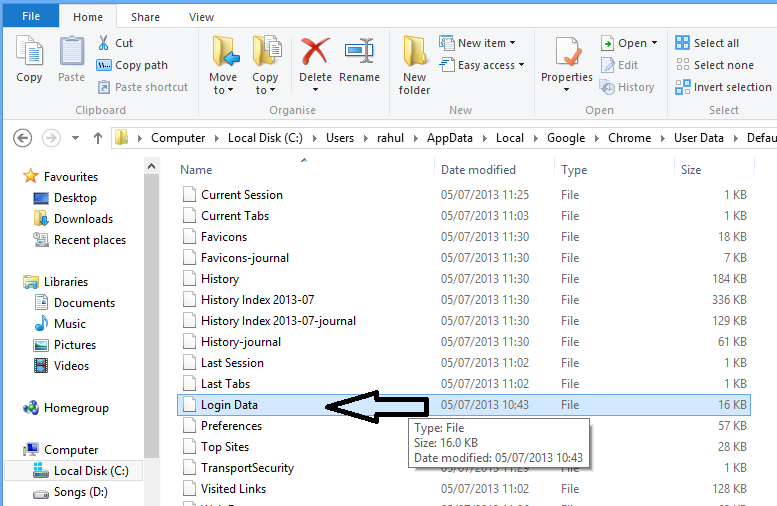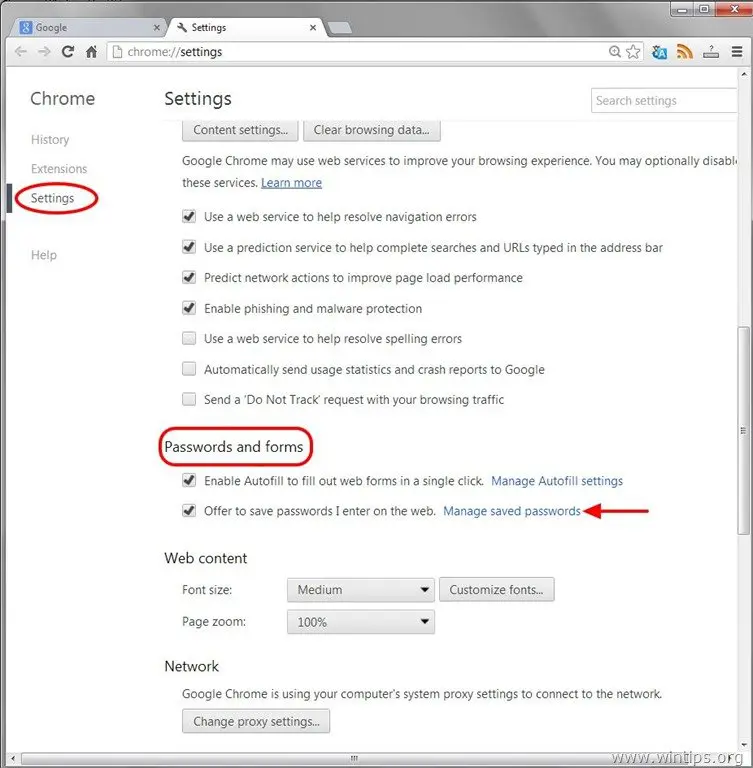
- Google chrome saved passwords linux windows 10#
- Google chrome saved passwords linux code#
- Google chrome saved passwords linux password#
The above steps work, regardless of browser or platform.
Google chrome saved passwords linux password#
The password will be un-hashed, revealed for all.Hit Enter, and close the Element Inspector.Double-click on type=”password”, and replace password with text.Right-click the password field on a website.

Google chrome saved passwords linux code#
For example, using the Inspect Element window of a browser, you can edit the code of a page in such a way that it will un-hash a user password. However, even on the Windows and macOS operating systems, there are ways around the password prompt. Firefox will give you access to those passwords without authentication, regardless of platform. However, there are plenty of tools available (such as iSumsoft Windows Password Refixer), which make it possible for a user to reset a Windows password and get around this hurdle. Linux, on the other hand, gives the user instant access, without prompting for authentication.
Google chrome saved passwords linux windows 10#
Update: If you’re using either the Windows 10 or macOS platforms, you will be prompted for a user password in order to access saved passwords in Chrome. SEE: Phishing attacks: A guide for IT pros (TechRepublic download) How easy can you view saved passwords? Password or not, those saved logins are there, for anyone to view. The difference between Firefox and Safari is the password isn’t optional in Apple’s browser. Like Chrome, Safari at least hides passwords behind a user’s password. Firefox, on the other hand, gives instant access to those passwords, without authentication, regardless of platform (unless a master password is set). On Linux (which is my platform of choice), Chrome will allow users to view saved logins, even without requiring a user password (unlike on Windows and macOS, where a user password is required). That reason is how easy it is to view passwords in modern web browsers. And when those passwords are incredibly complex, such that you must use a password manager, efficiency goes out the window.Īnd yet, even at the expense of productivity, there’s a very good reason why you should never allow a web browser to remember your passwords. After all, who wants to type a password every single time it’s requested? When you make use of a large number of online services, typing a password each time you use said service can disrupt your productivity.

Said roadblock is when a web browser is allowed to store passwords. Even when those users employ incredibly complex passwords, there is still a roadblock in the way of enjoying a truly safe networking experience. SEE: Information security policy template download (TechRepublic Premium) Why?įirst off, even after being constantly warned, users still insist on passwords like 12345 or password. The top 6 enterprise VPN solutions to use in 2023ĮY survey: Tech leaders to invest in AI, 5G, cybersecurity, big data, metaverseĮlectronic data retention policy (TechRepublic Premium)Īnd yet, no matter how hard we try to lock down those accounts, they are still vulnerable. Google offers certificate in cybersecurity, no dorm room required IT pros always harp on users to create secure passwords–to the tune of creating password profiles that demand specific requirements. Yet, they’re one of the only ways we have to secure our accounts, and those accounts are frequently compromised. They are the bane of so many users’ existence.


 0 kommentar(er)
0 kommentar(er)
